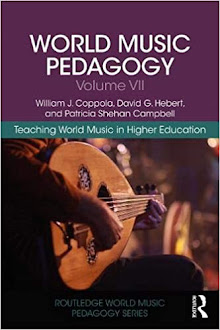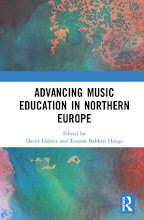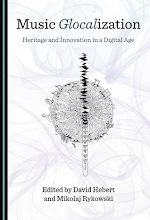In my view, the book offers "a rich collection of insightful contributions that demonstrate both the benefits of, and practical strategies for, internationalization of teacher education. Many American teachers graduate from education departments with surprisingly little knowledge of America’s role in the world. This book describes several pioneering programs that help to alleviate this problem through innovative approaches to transformative, experiential learning. In these times when the power of unrestrained corporations, militarism, and mass surveillance threaten democracy and human rights, there is a pressing need for such a book that inspires an empathetic, global perspective among teacher educators."
3/6/15
Globalization and Music, 2015
I look forward
to going to the Poznan Academy of Music again soon as an Erasmus visiting
professor and keynote speaker for the second symposium
on globalization and music. During this visit we will finalize plans to
publish a book based on both of the Poznan music globalization symposia from 2014, and
now 2015.
Ubiquitous technology and various
forms of techno-utopianism are common features of globalization that
deeply impact music and other arts. I am currently writing about such themes in
the editorial conclusion for a technology special focus issue of Arts
Education Policy Review, as well as a chapter on New Zealand Maori brass
bands for a book on the transculturation of bands in the Pacific islands.
My article on militarism in music
education was just published in Music
Educators Journal, the most widely circulated publication among American
music teachers. It is a rather critical article in a special issue that
largely celebrates cooperation between military bands and school music programs,
and I felt fortunate to have this high profile opportunity to offer an
alternative perspective. I have also recently submitted definitions for both "Sociomusicology" and "Competitions in Music" and a co-authored definition for "Historical Ethnomusicology," all of which were contracted to appear in the forthcoming SAGE Encyclopedia of Ethnomusicology.
Recently I had
the opportunity to review a very interesting book that could be happily endorsed:
Promoting
Global Competence and Social Justice in Teacher Education:
In my view, the book offers "a rich collection of insightful contributions that demonstrate both the benefits of, and practical strategies for, internationalization of teacher education. Many American teachers graduate from education departments with surprisingly little knowledge of America’s role in the world. This book describes several pioneering programs that help to alleviate this problem through innovative approaches to transformative, experiential learning. In these times when the power of unrestrained corporations, militarism, and mass surveillance threaten democracy and human rights, there is a pressing need for such a book that inspires an empathetic, global perspective among teacher educators."
I look forward
to some trips this spring and summer to both Tokyo and Beijing, where I have
various long-term music projects (including plans for translation of my books
into Chinese and Japanese languages), as well as some upcoming presentations
for the International
Symposium on the Sociology of Music Education (New Orleans) and the Tenth Asia-Pacific Symposium for Music
Education Research (Hong Kong), and planning for a visiting professorship
in the autumn in Brazil.
In my view, the book offers "a rich collection of insightful contributions that demonstrate both the benefits of, and practical strategies for, internationalization of teacher education. Many American teachers graduate from education departments with surprisingly little knowledge of America’s role in the world. This book describes several pioneering programs that help to alleviate this problem through innovative approaches to transformative, experiential learning. In these times when the power of unrestrained corporations, militarism, and mass surveillance threaten democracy and human rights, there is a pressing need for such a book that inspires an empathetic, global perspective among teacher educators."
Subscribe to:
Posts (Atom)





















